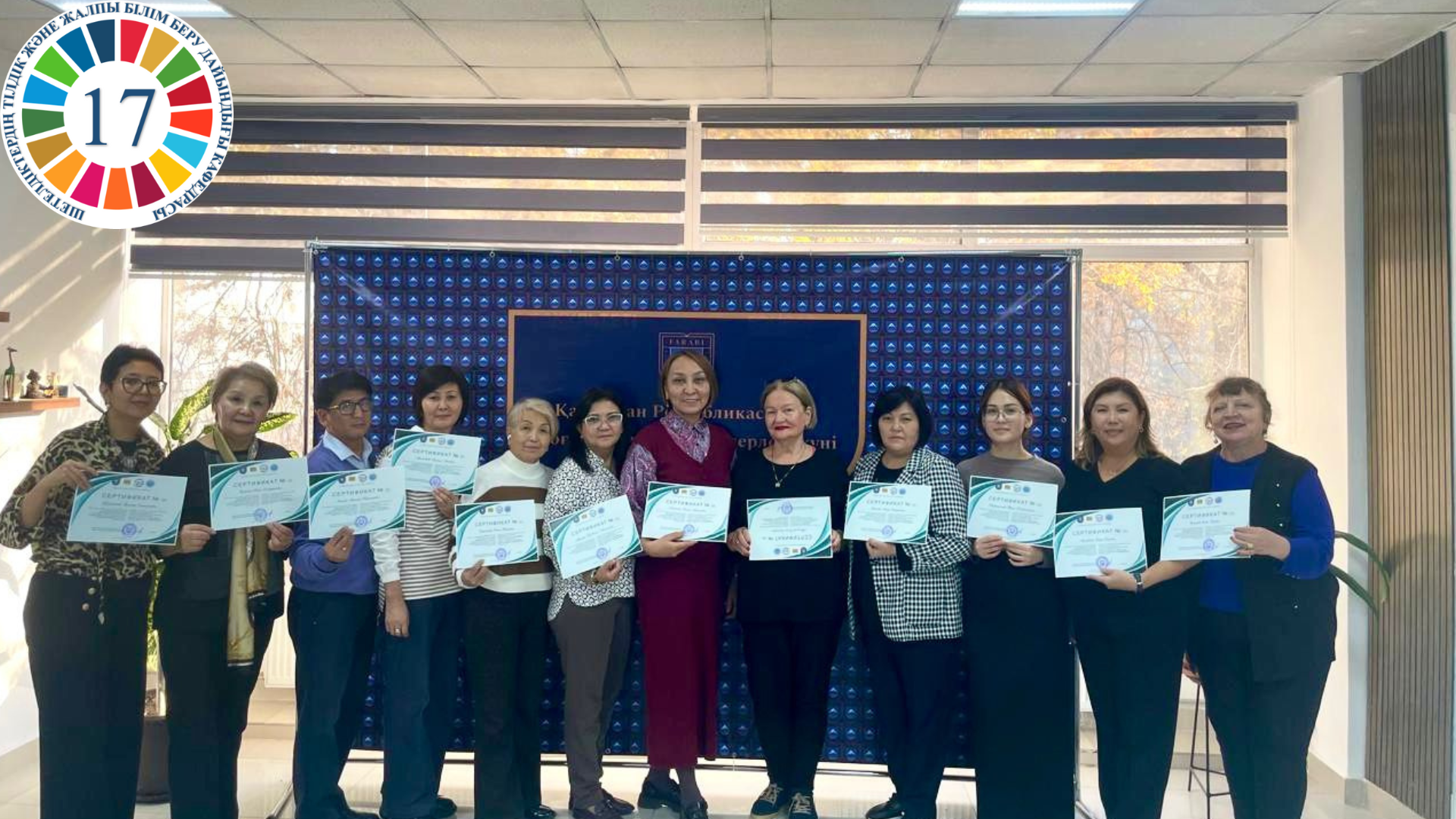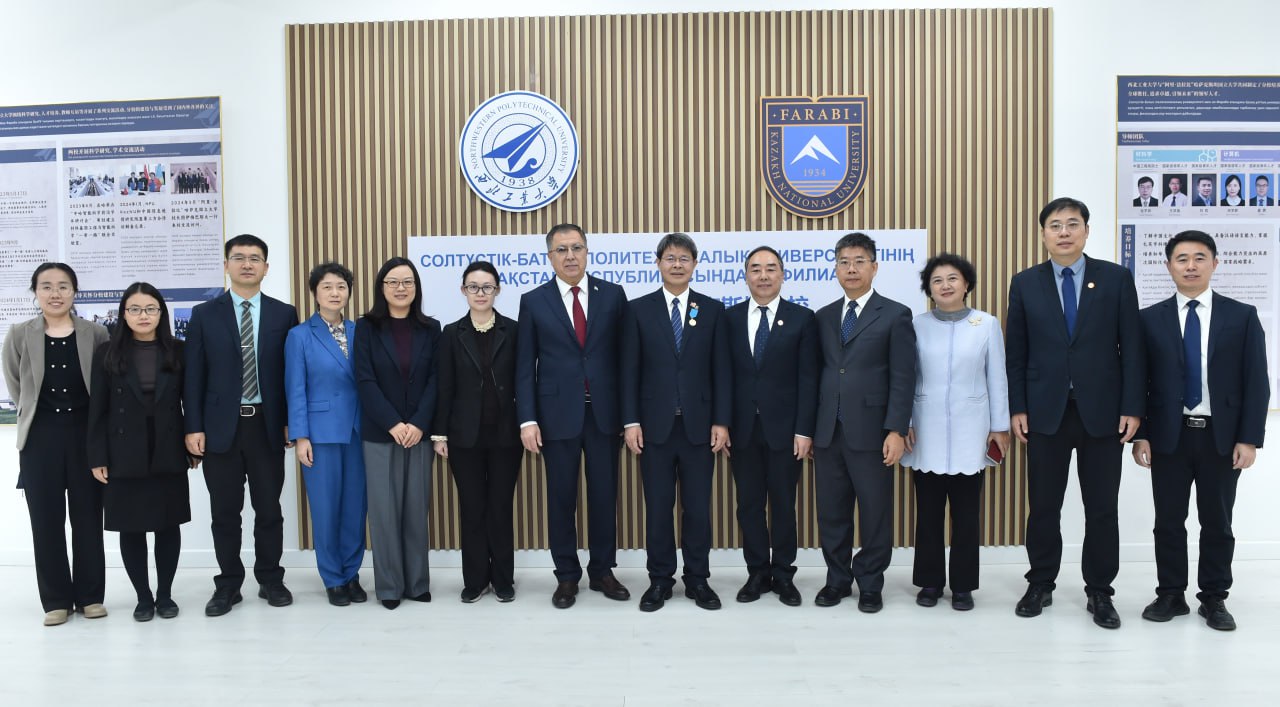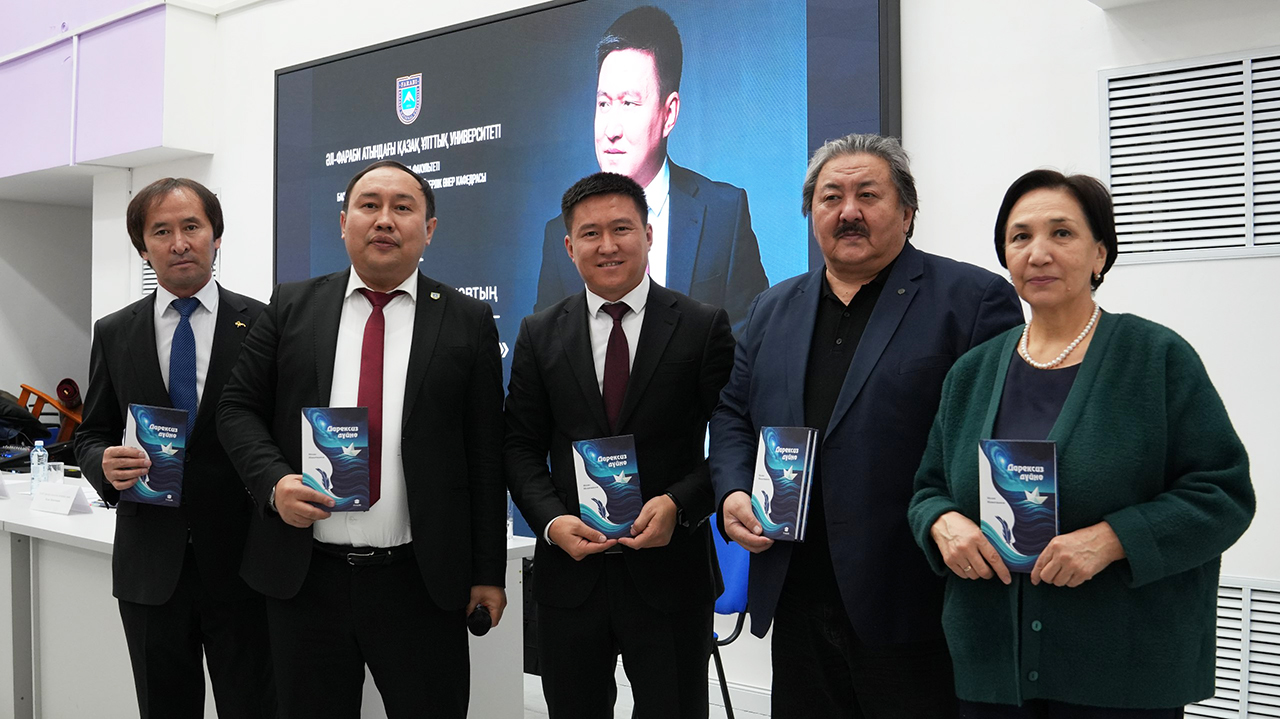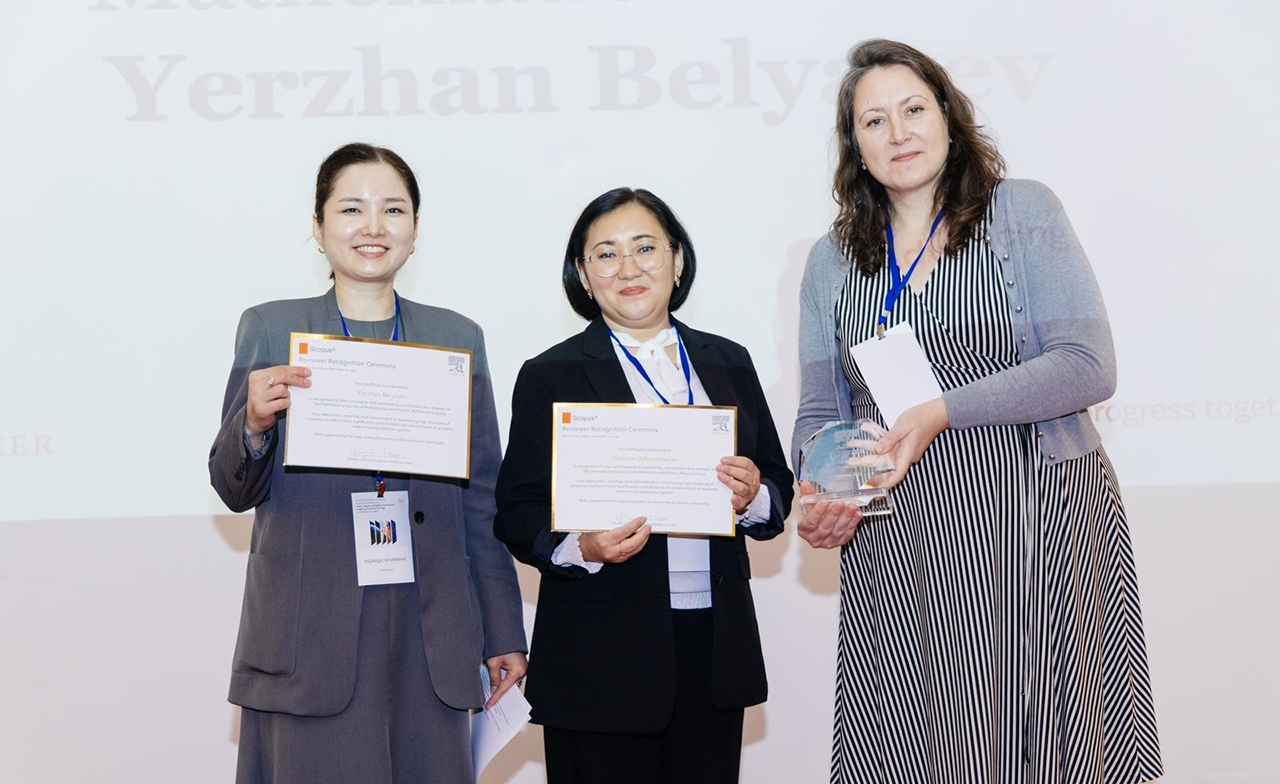- Main
- News
- International Roundtable "Turco-Slavica in the Context of Linguistic Diversity and Contactology" Interference, Cognitive Mechanisms, and Cultural Diplomacy in Contemporary Humanities
International Roundtable "Turco-Slavica in the Context of Linguistic Diversity and Contactology" Interference, Cognitive Mechanisms, and Cultural Diplomacy in Contemporary Humanities

On October 8, 2025, a roundtable discussion entitled "Turco-Slaviсa in the Context of Linguistic Diversity and Contactology" was held as part of the 5th Eurasian School of Cultural Diplomacy. It was organized by the Research Institute of Turkic and Altaic Studies at Al-Farabi Kazakh National University with the participation of the Department of Language and General Education Training of Foreigners. The event was supported by a grant from the Ministry of Science and Higher Education of the Republic of Kazakhstan for the project "Turkic Languages of Kazakhstan in the Context of Spiritual Modernization of Society: From Graphics to Epic Text" [IRN AP23486380], implemented under the Program of Scientific and Technical Projects for 2024-2026. The forum brought together researchers, teachers, and experts in the fields of Turkic studies, Slavic studies, cultural studies, and pedagogy, promoting a deeper theoretical understanding of the processes of interlingual and intercultural interaction in the Eurasian space. The event, held in a hybrid format, served as a discussion platform for interdisciplinary analysis of issues of multilingualism, language contacts, and cultural transmission in the context of a globalizing educational and sociocultural space.
The session was moderated by Ulzhan Yesenovna Mussabekova, Doctor of Philology and Head of the Manuscript Laboratory at the Research Institute of Turkology and Altaic Studies (Almaty). In her opening remarks, the scholar emphasized that modern contactology extends beyond traditional linguistics and is becoming a field of comprehensive humanities analysis, incorporating cognitive, cultural, and sociolinguistic parameters. Opening the discussion, Shakhriyor Safarovich Safarov, Doctor of Philology and Professor at the Samarkand State Institute of Foreign Languages, presented a paper entitled "Cognitive Characteristics of Multilingual Individuals." The researcher described a cognitive-psycholinguistic model that describes the mechanisms of switching between linguistic systems and the characteristics of semantic representation in bilinguals and multilinguals. Professor Aziza Furkatovna Shamakhmudova (Samarkand) in her paper "Language Identity of Bilinguals and Multilinguals" examined the phenomenon of linguistic identity in a multilingual environment, noting that identity is formed in the dialogue of cultures and manifests itself in an individual's ability to operate with various cognitive codes. The section on contactology also featured a paper by Professor Firuza Rustamovna Khalimova (Samarkand) on "Corpus Studies of Language Contacts," which explored the potential of corpus linguistics for identifying patterns of interference and mutual influence between Turkic and Slavic languages. Associate Professor Safa Saidullaevna Karimova, in her presentation "A Pragmatic Approach to the Translation of Connotative Elements," focused on the relationship between pragmatic and cultural equivalence in the translation of texts with distinct ethnocultural specificities. In her paper "Transformation of Conceptual Metaphors in Translation: Cognitive and Cultural Aspects," Associate Professor Shokhida Shokhrukhovna Ulugova presented the results of a study of metaphorical structures as a reflection of culturally conditioned ways of conceptualizing reality. Shokhida Shokhrukhovna presented numerous examples demonstrating how knowledge of the culture of a given language influences the translation process. Ainagul Mukhitovna Asabayeva, Master of Philology (Nur-Mubarak Egyptian University of Islamic Culture, Almaty), presented a paper titled "Comparative Analysis of Language Transformations in Kazakhstan and Uzbekistan: From Independence to Modernity." The paper traces the dynamics of language policy, the evolution of national language ideologies, and their influence on the educational system. PhD Feruza Meirbekovna Erzhanova (Abai Kazakh National Pedagogical University, Almaty) presented a conceptual study, "The Concept of Faith and Knowledge in the Ethnic Concepts of Turkic Thinkers," which analyzed the philosophical and linguistic unity of spiritual and rational principles in the Turkic intellectual tradition.
During the discussion, participants concluded that modern contactology is becoming a key area of humanities research, combining cognitive models, corpus-based methods, and cultural-anthropological analysis. A trend toward the formation of an integrative paradigm was identified, within which linguistic diversity is viewed not as an obstacle to communication, but as a resource for the development of science, education, and cultural diplomacy. The roundtable confirmed the scientific and practical significance of the "Turco-Slavika" project as a model for sustainable dialogue between the Turkic and Slavic academic communities, contributing to the strengthening of cultural and academic cooperation in the Eurasian region.
Mussabekova U.E.,
Dr. Sc. (Philol.), Acting Assoc. Prof.,
Department of Language and General Education for Foreigners,
Pre-University Education Faculty,
Al-Farabi Kazakh National University.


